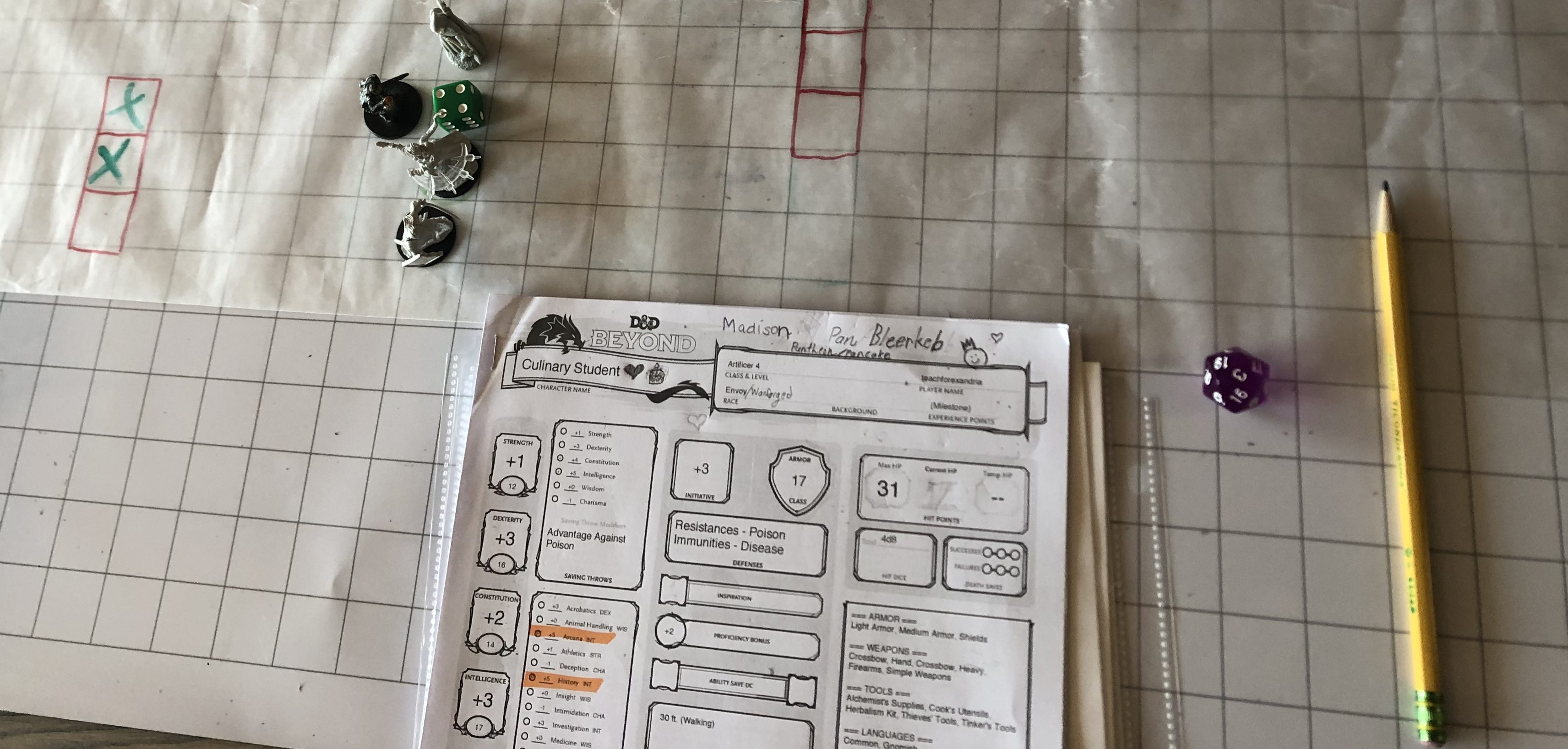
How can RPGs Help My Child?
Communication Skills
At the table, an introverted player can practice being more assertive through their character’s choices. By stepping up for the group, players learn in a safe environment that it’s okay to put themselves out there more in real life, too.
On the other hand, people who tend to dominate conversations have to learn how to dial back their energy and make room for everyone in the party. Characters who won’t share the spotlight often see in-game consequences, like annoying a potential ally or drawing unwanted attention at the tavern. Feedback in game helps players practice picking up on these social cues in the real world as well.

Cooperation

Conflict Resolution
Sometimes issues arise between two players as well. Kendall has experience guiding these interactions out of character so that everyone is respectful and listens to the other point of view.
Perspective-Taking and Empathy
Players can take this practice IRL to acknowledge different sides in a conflict, to be more tolerant and forgiving, and to see more nuanced shades of gray in their social interactions.

Problem-Solving and Strategy
RPGs can include puzzles or riddles, and there is a surprising amount of math involved using a variety of dice. Players practice strategy in combat, but there’s room for everyone to play as they discover for themselves different tactics or approaches. There are no “right” or “wrong” answers in role-playing games; a good plan can go awry with some unlucky dice rolls, and creative solutions are rewarded in game as well.

Creative Writing & Artistic Expression
Players describe what their character does and what they’re thinking. The GM describes the setting and non-player characters. The dice provide randomization that create story opportunities for heroic successes and epic obstacles to overcome.
Members often get inspired by their characters to create their own backstories, character art, and other forms of artistic expression.

Patience and Frustration Tolerance
The dice themselves in role-playing games play a part in creating drama and at times, disappointment. Just as in life, we don’t always get to write every part of our characters’ stories. Some players become upset that their brilliant plan didn’t work out after all, or feel jealous that a “weaker” character got the finishing blow. In these guided sessions, Kendall as GM capitalizes on these instances to help players accept obstacles and frustrations more appropriately and apply that in the real world as well.
Self-Esteem




